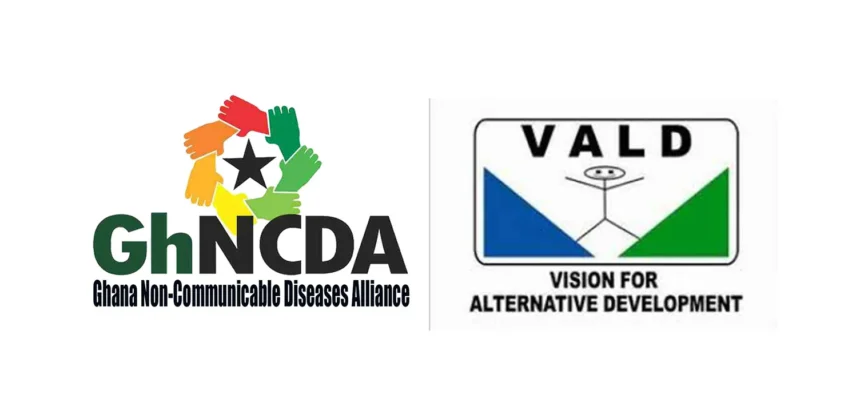Ghana’s civil society organizations (CSOs) are throwing their weight behind the Food and Drugs Authority’s (FDA) guidelines restricting celebrities from advertising alcoholic beverages, urging public support for protecting youth against the harms of alcohol exposure.
In a united front with the FDA, prominent groups like Vision for Alternative Development Ghana and the Ghana NCD Alliance are acknowledging the harmful effects of alcohol advertisements featuring famous personalities that children and young people look up to.
This stance comes as the organizations rally behind the FDA in an ongoing legal battle at the Supreme Court, where an artiste manager, Mark Darlington Osae, has challenged the constitutionality of the FDA’s 2015 guidelines prohibiting “well-known personalities or professionals” from being used in alcoholic beverage advertising.
Osae, the manager of Reggie ‘N’ Bollie and Skrewfaze, argues that the FDA directive discriminates against the creative arts industry and violates articles 17(1) and 17(2) of Ghana’s 1992 Constitution, which guarantee equality before the law and prohibit discrimination based on occupation or economic status.
“This is not the first instance of tension caused by the law within the entertainment industry,” read a statement issued on January 15, 2024, by Labram M. Musah, Executive Director of Vision for Alternative Development, Ghana, and National Coordinator of the Ghana NCD Alliance.
The CSOs’ statement highlighted that while some celebrities and show hosts have opposed the child protection provision, others support efforts to enhance the quality of life for young people and children.
Citing the country’s commitment to the UN Convention on Children’s Rights and its own Children’s Act, the statement emphasized that celebrities, as role models, should prioritize the health implications on minors and young people over financial gains from alcohol endorsements.
“The normalization of alcohol consumption in society, fueled by pervasive advertising and celebrity endorsements, contributes to a culture where drinking is portrayed as commonplace,” the statement read.
It pointed to renowned figures like Cristiano Ronaldo, Paul Pogba, and Asamoah Gyan, who abstain from alcohol, as examples of strong moral character worth emulating by the youth.
Drawing on World Health Organization (WHO) statistics, the statement underscored the severe health implications of alcohol use among the youth, including cognitive impairments, increased risk of various diseases, and negative impacts on academic performance.
The country’s Supreme Court has set April 10, 2024, as the date to deliver its judgment on Osae’s case, which seeks to have the FDA’s directive against alcoholic advertisements by celebrities canceled.
In their statement, the CSOs called on all Ghanaians, including the media, parents, policymakers, civil society actors, and academic institutions, to support stringent measures regulating and limiting children and young people’s exposure to alcohol advertisements and other substances of abuse.
“The protection of present and future generations requires collective effort to resist any actions that undermine life-saving measures safeguarding health, moral standards, and societal values,” the statement asserted.
As the legal battle rages on, the CSOs remain steadfast in their support for the FDA’s efforts to create a safer and healthier environment for Ghana’s youth by curbing the influential power of celebrity endorsements in the alcohol industry.









